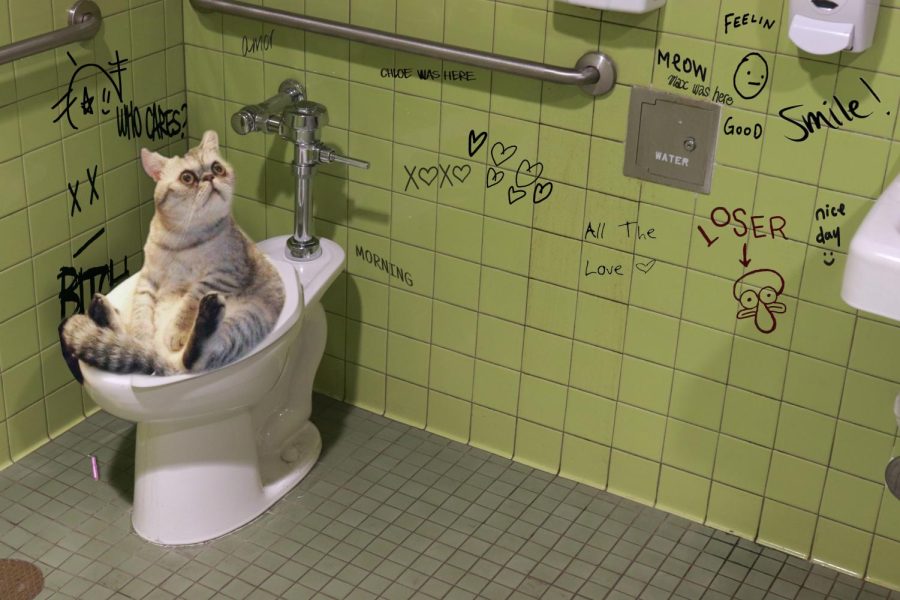Don't Flush Cat Poop Down Your Toilet - Maintain Your Home's Plumbing Integrity
Don't Flush Cat Poop Down Your Toilet - Maintain Your Home's Plumbing Integrity
Blog Article
How do you really feel about Can You Flush Cat Poop Down The Toilet??

Introduction
As cat owners, it's vital to bear in mind exactly how we take care of our feline pals' waste. While it may appear practical to purge cat poop down the commode, this technique can have destructive consequences for both the environment and human health.
Alternatives to Flushing
Luckily, there are much safer and more responsible means to dispose of cat poop. Think about the following alternatives:
1. Scoop and Dispose in Trash
The most usual approach of dealing with feline poop is to scoop it into a biodegradable bag and throw it in the trash. Be sure to utilize a dedicated clutter scoop and get rid of the waste quickly.
2. Usage Biodegradable Litter
Go with biodegradable pet cat clutter made from products such as corn or wheat. These litters are environmentally friendly and can be securely gotten rid of in the garbage.
3. Hide in the Yard
If you have a backyard, think about burying cat waste in an assigned location away from veggie yards and water sources. Make certain to dig deep adequate to stop contamination of groundwater.
4. Mount a Pet Waste Disposal System
Buy a family pet garbage disposal system specifically created for pet cat waste. These systems make use of enzymes to break down the waste, minimizing odor and ecological influence.
Health and wellness Risks
Along with environmental worries, purging pet cat waste can likewise present health dangers to people. Pet cat feces may contain Toxoplasma gondii, a bloodsucker that can create toxoplasmosis-- a possibly serious illness, especially for pregnant ladies and people with damaged body immune systems.
Ecological Impact
Flushing feline poop presents dangerous microorganisms and bloodsuckers right into the water system, posturing a significant danger to aquatic communities. These contaminants can negatively impact marine life and compromise water high quality.
Verdict
Accountable pet possession extends beyond supplying food and shelter-- it also includes appropriate waste administration. By avoiding flushing feline poop down the commode and selecting different disposal techniques, we can reduce our environmental impact and safeguard human wellness.
Why Can’t I Flush Cat Poop?
It Spreads a Parasite
Cats are frequently infected with a parasite called toxoplasma gondii. The parasite causes an infection called toxoplasmosis. It is usually harmless to cats. The parasite only uses cat poop as a host for its eggs. Otherwise, the cat’s immune system usually keeps the infection at low enough levels to maintain its own health. But it does not stop the develop of eggs. These eggs are tiny and surprisingly tough. They may survive for a year before they begin to grow. But that’s the problem.
Our wastewater system is not designed to deal with toxoplasmosis eggs. Instead, most eggs will flush from your toilet into sewers and wastewater management plants. After the sewage is treated for many other harmful things in it, it is typically released into local rivers, lakes, or oceans. Here, the toxoplasmosis eggs can find new hosts, including starfish, crabs, otters, and many other wildlife. For many, this is a significant risk to their health. Toxoplasmosis can also end up infecting water sources that are important for agriculture, which means our deer, pigs, and sheep can get infected too.
Is There Risk to Humans?
There can be a risk to human life from flushing cat poop down the toilet. If you do so, the parasites from your cat’s poop can end up in shellfish, game animals, or livestock. If this meat is then served raw or undercooked, the people who eat it can get sick.
In fact, according to the CDC, 40 million people in the United States are infected with toxoplasma gondii. They get it from exposure to infected seafood, or from some kind of cat poop contamination, like drinking from a stream that is contaminated or touching anything that has come into contact with cat poop. That includes just cleaning a cat litter box.
Most people who get infected with these parasites will not develop any symptoms. However, for pregnant women or for those with compromised immune systems, the parasite can cause severe health problems.
How to Handle Cat Poop
The best way to handle cat poop is actually to clean the box more often. The eggs that the parasite sheds will not become active until one to five days after the cat poops. That means that if you clean daily, you’re much less likely to come into direct contact with infectious eggs.
That said, always dispose of cat poop in the garbage and not down the toilet. Wash your hands before and after you clean the litter box, and bring the bag of poop right outside to your garbage bins.
https://trenchlesssolutionsusa.com/why-cant-i-flush-cat-poop/

I discovered that blog posting on How to Dispose of Cat Poop and Litter Without Plastic Bags while doing a search on the web. Sharing is nice. You never know, you could be doing someone a favor. Thank-you for your time spent reading it.
Schedule And Pricing Report this page